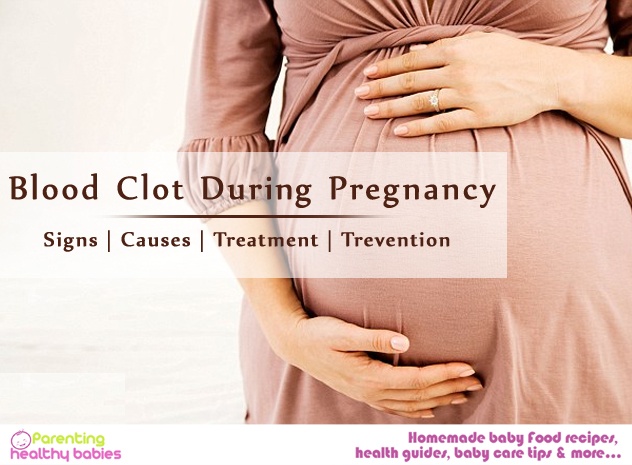Blood clots are formed when your body goes through some kind of injury and the body sends platelets to stop bleeding from the injured part. During early pregnancy, blood clots can be scary as it may be a sign that something is wrong with your developing baby. However, during later stages of pregnancy, blood clots are the sign that your body is preparing for the labour ensuring minimal bleeding. Blood clots caused due to deep-vein thrombosis or DVT can be serious in nature as they affect the legs and pelvic region and cause serious health disorders. However, there are ways to prevent and treat this condition as well. Blood clot affects only 1 or 2 women out of 1000 so there is less to worry.
Read More: 11 Ways to Manage High Blood Pressure During Pregnancy
Causes of Blood Clot During Pregnancy
Blood clots are common during early and late pregnancy. Blood clot due to DVT is risky and it is important for you to identify if your clots are caused due to DVT. You have chances of suffering from DVT if:
- You or anyone in your family has suffered from DVT before
- You’re obese
- You are expecting more than one child
- You are a smoker or exposed to smoke frequently
- And you have been travelling a lot during pregnancy
Blood clots before labour are common and not at all a sign of worry. Clots are important before and during labour to have less bleeding during delivery. If your blood is unable to form clots, you may experience lot of bleeding during your delivery.
Signs of blood clot
During pregnancy women are usually extra cautious about what they are eating, how their body is reacting and changing with passing time. When blood clots form, there are certain sins that you need to look out for. One of the most common signs of blood clot is a swollen leg. Usually you will also experience pain in the swollen leg. The pain gets worse when you walk. Your veins will also look larger than they normal appear. Another prominent sign of blood clot is pain behind the knee of any of your legs. The affected area is warm to touch. DVT can get worse and keep you confined to your bed. It makes it difficult for you to continue with your daily activities.
Read More: High Blood Pressure During Pregnancy: Sign, Symptoms, Risk, Treatment
Treatment of blood clot
Blood clot due to DVT comes with health risks. When pregnant these risks are not only a threat to you but also to your child. DVT can affect your pregnancy in a number of ways. It can cause clotting of blood in the placenta that is a serious threat to the foetus. Blood clot is also a sign of heart attack. It block the major arteries that lead to heart attack. Blood clots are also a sign of stroke. And also lead to a condition called pulmonary embolism in which blood clots break and settle in the lungs. It can be fatal for both mother and the child. Clots can eventually lead to miscarriage as well. Good news is that DVT can be treated. Doctors mostly prescribe anticoagulants which thin the blood and prevent the formation of clots. Make sure you have the anticoagulants only for the prescribed duration. Overdose of anticoagulants can lead to excessive thinning of blood which is unhealthy for your pregnancy, especially during delivery.
Read More: Home Remedies For Swollen Feet During Pregnancy
Prevention of blood clots
To prevent blood clots, a healthy lifestyle is very important. An active lifestyle can prevent conditions like DVT. Include exercises like yoga or pilates in your daily routine to ensure blood circulation is healthy throughout the body. If you are a smoker then you should consider giving it up while you’re pregnant. Smoking increases the chances of you suffering from DVT. Avoid the company of people who smoke and if you are stepping outside then wear a face mask to protect yourself from pollution. Eat green leafy vegetables that help you have a healthy circulatory system. Green leafy vegetables like spinach, broccoli, lettuce etc help in maintaining a healthy blood count. Include fresh fruits in your diet. Take health supplements which help in maintaining overall good health. Go for massage as they are relaxing and also improve blood circulation and prevent DVT.
Pregnancy leads to many complications and DVT is one of them. Frequent check ups and a healthy diet can help prevent DVT from happening. If you are already suffering from DVT, do not delay in opting for medications after consulting the doctor. Visit a physiotherapist if your DVT is making it difficult for you to move.
Read More: Home Remedies for Swollen Feet/Hands during Pregnancy
